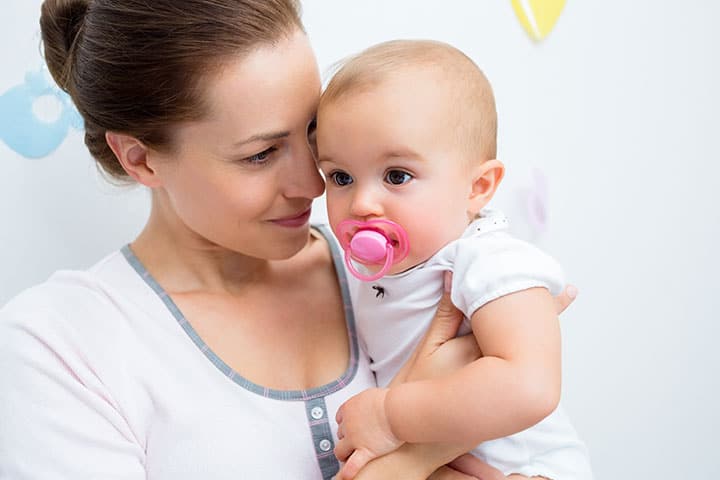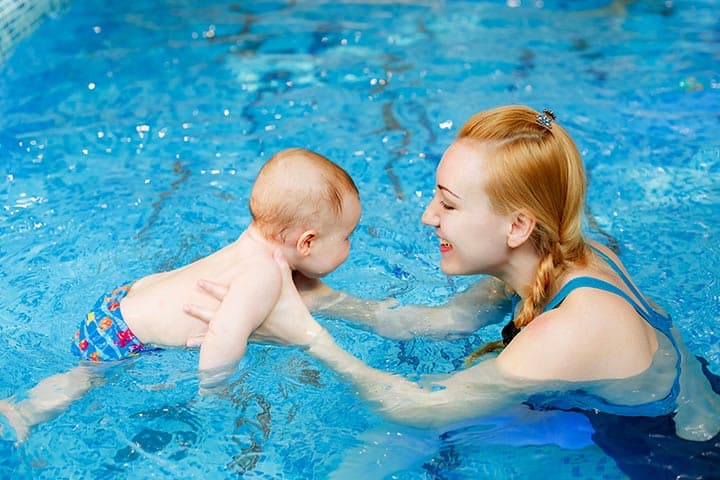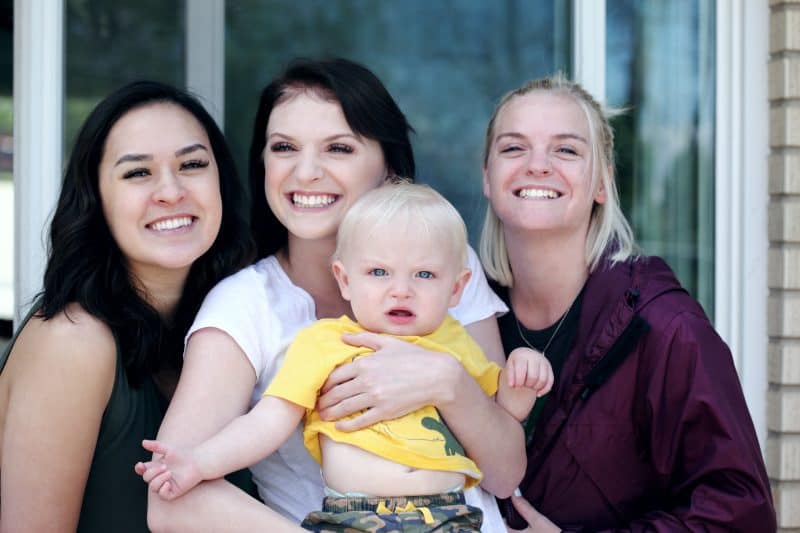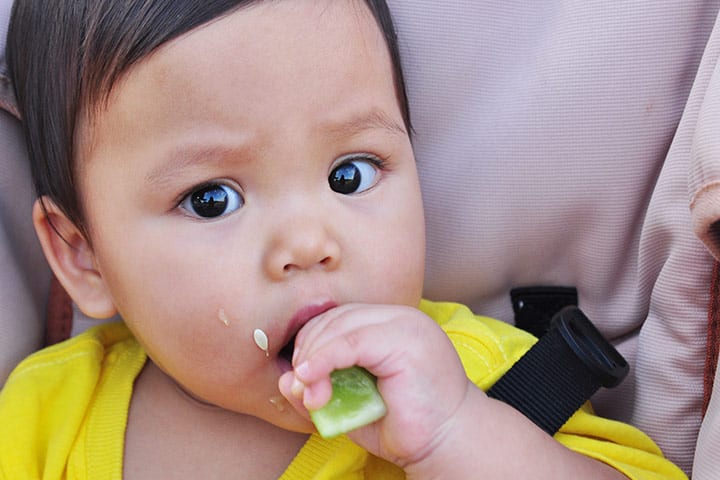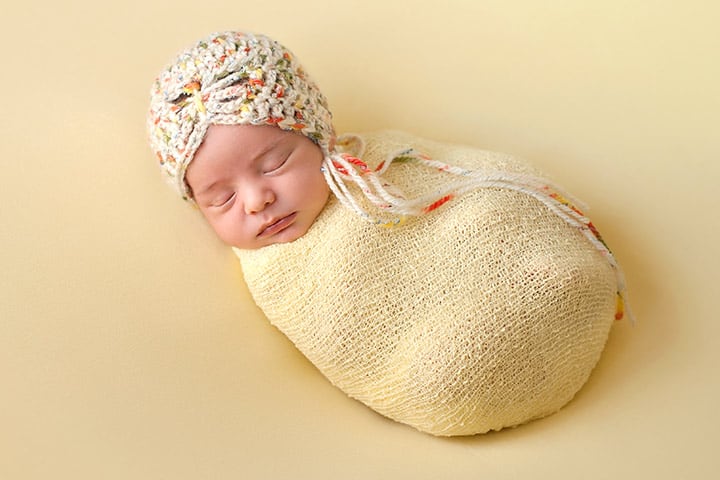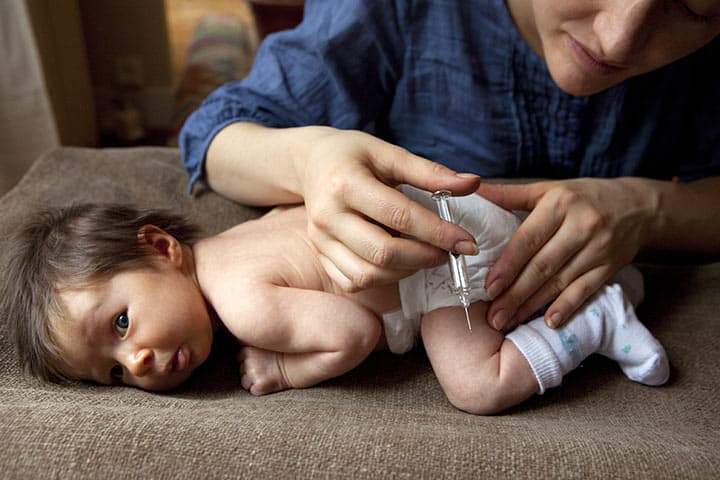Is your newborn suffering from any genetic disorder? Did your doctor diagnose him with Phenylketonuria (PKU)? If you said yes, you need get him treated at once. What is Phenylketonuria (PKU)? How does it happen? Read our post and get the answers to your questions here.
What Is Phenylketonuria (PKU)?
The disease of Phenylketonuria (PKU) is a rare genetic disorder, which occurs in newborn babies. When a baby suffers from the disease, the body cells lose its ability to breakdown the specific amino acid phenylalanine.
The specific group of the protein is present in breast milk, eggs or dairy based products. Thus the inability to absorb the protein affects the central nervous system of the baby, and he suffers from numerous health disorders. (1)
What Causes PKU In Babies?
The disease of Phenylketonuria (PKU) is a genetic disorder. When a baby inherits defective genes from his parents, the body lacks a certain group of enzymes. The cells become incapable of breaking down the essential amino acid called phenylalanine.
Foods To Avoid During Phenylketonuria (PKU):
It enhances a dangerous build up of the baby’s body, and he may not able to eat a certain group of protein-rich foods. Some of the foods to avoid are:
- Milk
- Cheese
- Nuts
- Meat and poultry
- Fish
- Beans
- Soybeans
For a newborn baby to inherit PKU, both the mother and father must have defective genes. The pattern of inheritance is called autosomal recessive. Though the parents may have the defective gene, but they may not suffer from the disease of Phenylketonuria (PKU). Such a person who carries the gene serves as a carrier. If any one parent is a carrier and has the defective gene, the probability of the baby suffering from PKU is extremely low. (2)
Symptoms Of Phenylketonuria (PKU) In Babies:
Babies born with PKU seem to be normal for the first few months of their birth. But with the passage of time, some of the noticeable symptoms of the disease begin to surface. Some of these pku symptoms in babies include:
- Abnormally small head (Microcephaly)
- Jerky movements of arms and legs
- Delayed body growth and development
- Poor bone strength
- Intellectual disabilities or mental retardation
- Seizures
- A distinct or musty odor in breath, skin, or urine
- Whitish skin color and blue eyes as phenylalanine, cannot transform into melanin
- Behavioral problems like hyperactivity
- Taking longer than expected time to sit, crawl or walk
- Skin rashes (eczema) (3)
Complications Of Phenylketonuria (PKU) In Babies:
If you don’t treat Phenylketonuria (PKU) is within the limited timeframe the baby seems to suffer from following health disorders:
- Neurological problems such as seizures and tremors
- Intellectual disability in first few months of the baby’s life
- Significant behavioral problems
- The normal growth rate is hampered, and the baby’s health is affected. (4)
Diagnosing Phenylketonuria (PKU) In Babies:
Medical tests for PKU in babies occur immediately after their birth. The test occurs when the baby turns one day old. The methods of screening newborn babies for phenylketonuria include:
- The lab technician collects few drops of blood from your baby’s body.
- The technician conducts a clinical blood diagnosis to check for the presence of a genetic disorder.
- If the medical blood sampling test indicates that your newborn baby may have PKU:
- Your baby has to undergo some additional blood and urine tests.
- The parents and the baby must go through a genetic testing to identify gene mutations. (5)
Treating Phenylketonuria (PKU) In Babies:
The major treatments for Phenylketonuria include:
- A diet that is devoid of protein rich foods.
- Consumption of formulated nutritional supplements can promote proper growth and development of your baby.
- As breast milk contains phenylalanine, newborn babies with PKU need to consume a phenylalanine-free infant formula food. (6)
Home Remedies To Cure Phenylketonuria (PKU) In Babies:
You can practice safe home remedies to cure Phenylketonuria or reduce its symptoms in your little ones:
- Keep Track Of Your Baby’s Diet:
If your baby is a PKU sufferer, you need to keep a close track of his daily diet. Follow the specific dietary guidelines recommended by the dietician. To be more precise, measure the quantity of formulated baby food and keep a record of the total amount of phenylalanine consumed every day.
- Buy Low-Protein Food Products:
Ensure that your baby consumes low-protein foods as the protein can reduce his phenylalanine intake.
- Seek Guidance From The Dietician:
Ask the Dietician to provide a daily timetable or PKU diet for infants food regime. PKU meal plans differ for every baby. Remember that the meal plan can change with time, and you need to change the proportion of phenylalanine accordingly.
Preventing Phenylketonuria (PKU) In Babies:
PKU occurs in the newborn baby when he inherits two copies of specific genes from both the parents. Each parent contains one copy of the gene and, therefore, does not suffer from PKU. But if each of the single copy of the gene passed to the baby, he is more likely to suffer from PKU.
A pregnant woman who is the carrier of the defective gene should strictly control her phenylalanine levels before and during pregnancy. A high percentage of phenylalanine during pregnancy can hamper the health conditions of the newborn baby. With careful monitoring and control of phenylalanine levels, the pregnant woman can give birth to a healthy baby. (7)
When To Seek Medical Help?
With baby’s preliminary genetic screening test, the doctor can sometimes diagnose babies with PKU. Call your baby’s doctor if your baby:
- Seems to be less inactive than expected normally.
- Displays other observable symptoms and signs of PKU.
- Suffers from a severe developmental delay or mental retardation.
Did your newborn baby suffer from Phenylketonuria (PKU)? What were the treatments and medications suggested by your doctor? Share your stories with other moms here. Do you have any suggestions or questions? Tell us about them. Leave a comment below.





